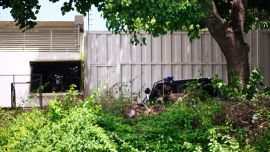“April is the cruellest month” are the opening words of T.S. Eliot’s poem ‘The Waste Land’ (as apt a description as any of Argentina these days) and if last April was the first full month of lockdown, this April has seen the return of a slightly more restricted set of restrictions. Winter approaches with the vaccine trickle-down failing to keep pace with a surging contagion curve, while the daily Covid-19 death toll almost doubled between last weekend and midweek. Evidently a recently recovered President Alberto Fernández could not stand idly by but nor was it a question of simply pressing the panic button and reverting to last year’s lockdown in view of its economic havoc (which may well have required some statistical legerdemain to keep within single digits with the 2020 contraction measured at 9.9 percent). Fernández was thus confronted with a multiple choice question as to where to crack down while maximising public health benefits and minimising socio-economic costs with the flurry of restrictions announced in midweek falling mainly on two areas – nightlife in the broadest sense and education.
While nightlife is not always as frivolous as it might sound (some people have to work at night and will need to circulate during the 10 new curfew hours between 8pm and 6am, while the damage from this new restriction for the already badly battered restaurant sector could be fatal), it is clearly the less controversial of these two areas and this editorial proposes to focus on education – a sector whose importance should not need to be explained in a century in which manual labour could become extinct. How could it not be listed among the essential activities? This choice is curious because in recent weeks it has been almost a mantra within government circles to insist that neither factories nor schools were sources of contagion with the blame falling on extramural activities – the decision thus becomes genuinely incomprehensible, hardly leaving open any other conclusion beyond the worst suspicions of the government caving in to teacher union pressures once again, rather than seriously exploring all the available options. As the wife of one of our newsroom remarked, how can it be possible to get a manicure but not send the children to school?
“The essential is invisible to the eye,” said Le Petit Prince and if it can be agreed that education is essential, the damage done by no schooling last year beyond substandard Zoom classes is correspondingly invisible to the eye – last year’s economic havoc has been quantified at 9.9 percent but there is no way of measuring the losses for years to come from these extended suspensions of classroom education. Last year’s lockdown overkill (which saw the total death toll still below 1,000 in mid-2020 after four months of coronavirus in Argentina, well beneath this single week’s figures) at least had the virtue of buying priceless time to shore up a precarious health system for the new challenges, multiplying such key items as intensive care beds and artificial respirators, with the result that a collapse of the health system has been successfully resisted over the past year until now, although under greater strain than ever. Little sign of any such adaptation from the educational system – a labour-intensive sector (with educational workers, as they call themselves, numbering fully three percent of the Argentine population) has severe problems adjusting to a digital future which some view as threatening their job security in particular and social equality in general. But if there is no transition from classroom to virtual education which improves the quality, the need for educational reform might turn into revolution, which may in any case become inevitable with the pace of change.
City Hall and several provinces are resisting the closure of classrooms and all power to them. But yet it would be tragic if the legitimate doubts about the wisdom of these school closures were seen to be justifying a general defiance of all pandemic restrictions in the name of personal freedom and individual rights. The authority of these restrictions must be defended at all costs but this is not only defended by being heeded by the citizenry but also by basing those restrictions on sound management instead of undermining that authority with improvised measures holding an entire generation of schoolchildren hostage.





















Comments